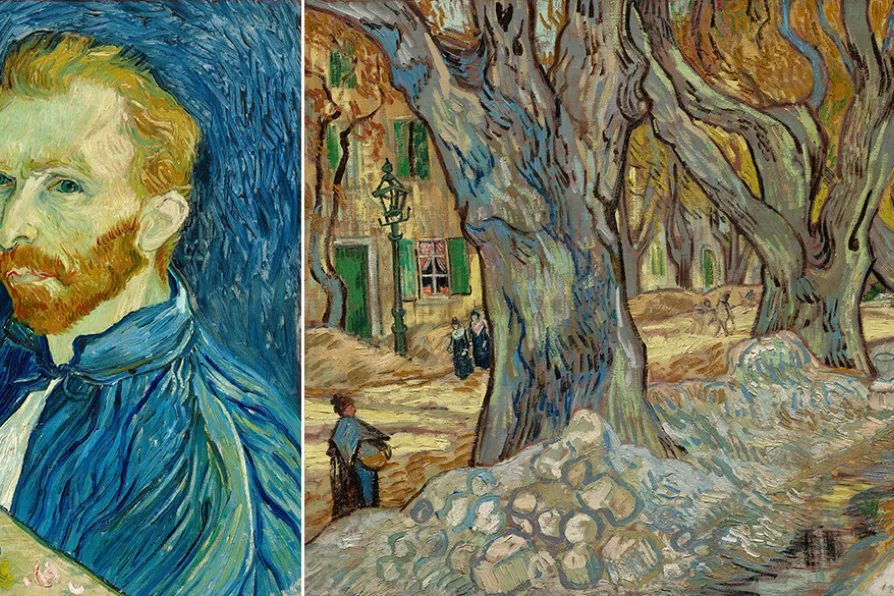Releases from Rahsaan Roland Kirk, Maggie Nicols/Robert Mitchell/Alya Al Sultani, and Gordon Beck Trio and Quintet

 (L) Vincent Van Gogh, Self-Portrait, 1889; (R) The Large Plane Trees (Road Menders at Saint-Rémy), painted on a red-check table cloth, 1889
[Courtesy National Gallery of Art Washington/Cleveland Museum of Art/CC]
(L) Vincent Van Gogh, Self-Portrait, 1889; (R) The Large Plane Trees (Road Menders at Saint-Rémy), painted on a red-check table cloth, 1889
[Courtesy National Gallery of Art Washington/Cleveland Museum of Art/CC]
Van Gogh: Poets and Lovers
National Gallery, London
EXHIBITIONS, films, documentaries and numerous articles have perpetuated the view that Vincent Van Gogh (1853-90) was an impassioned but mentally unstable genius. The first of these was the French Symbolist writer Albert Aurier’s 1890 article which praised Van Gogh’s work but called him: “An inspired enemy of all bourgeois sobriety and scruple, a kind of drunken giant … whose mind is constantly erupting … an irresistible, terrifying crazed genius, often sublime, sometimes grotesque, always on the brink of the pathological.”
In fact Van Gogh was a highly intelligent, widely read and profoundly self-aware person, who was knowledgable about art and literature and who only suffered intermittent bouts of mental illness during the last two years of his life, during which he took care not to paint.
Born in 1853 in the Netherlands to Theodorus Van Gogh, a pastor, and his wife Anna Cornelia Carbentus, Van Gogh worked for the art dealers Goupil & Cie from 1869 to 1875 where he acquired a wide knowledge of original works of art which he expanded through reading and visiting exhibitions for the rest of his life.

Peter Mitchell's photography reveals a poetic relationship with Leeds













